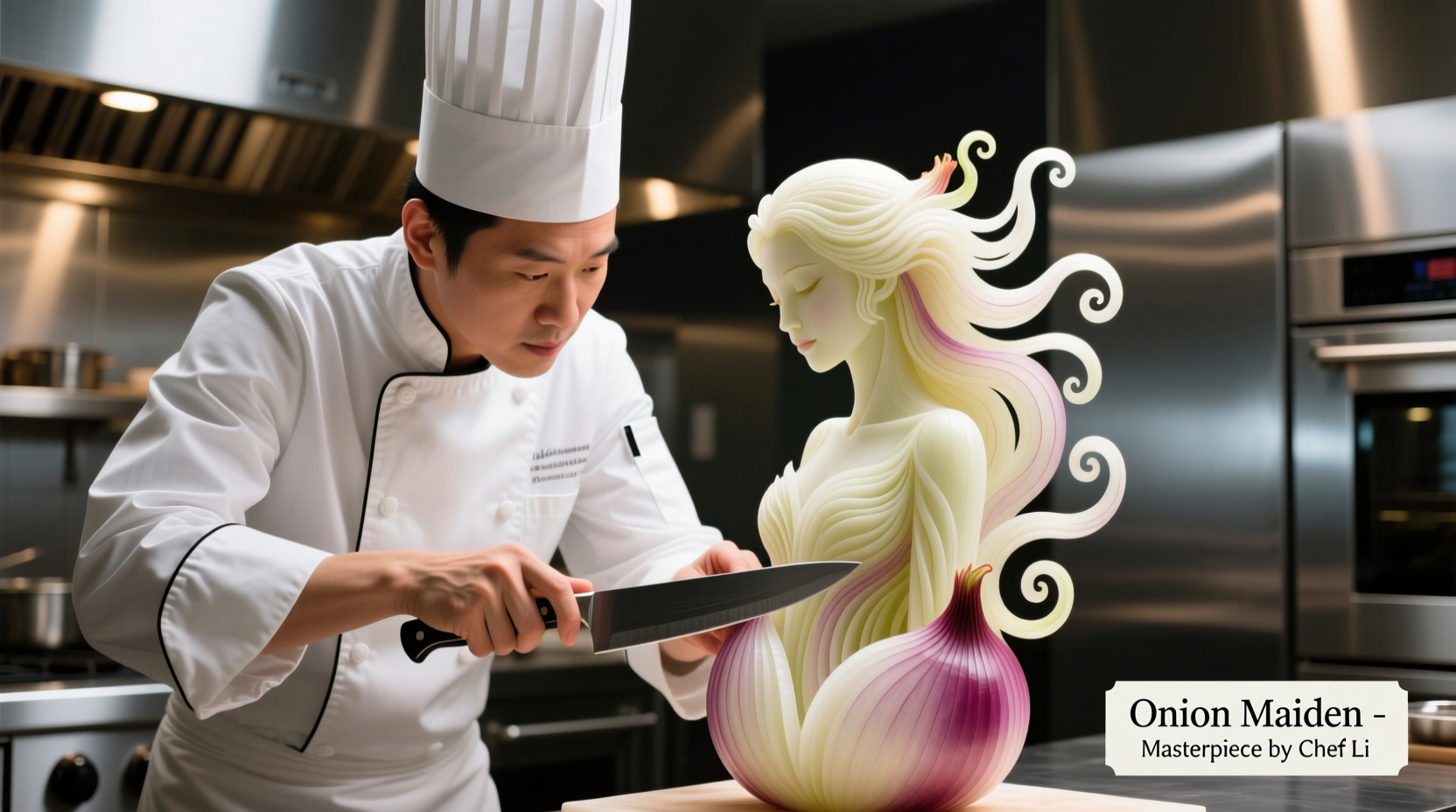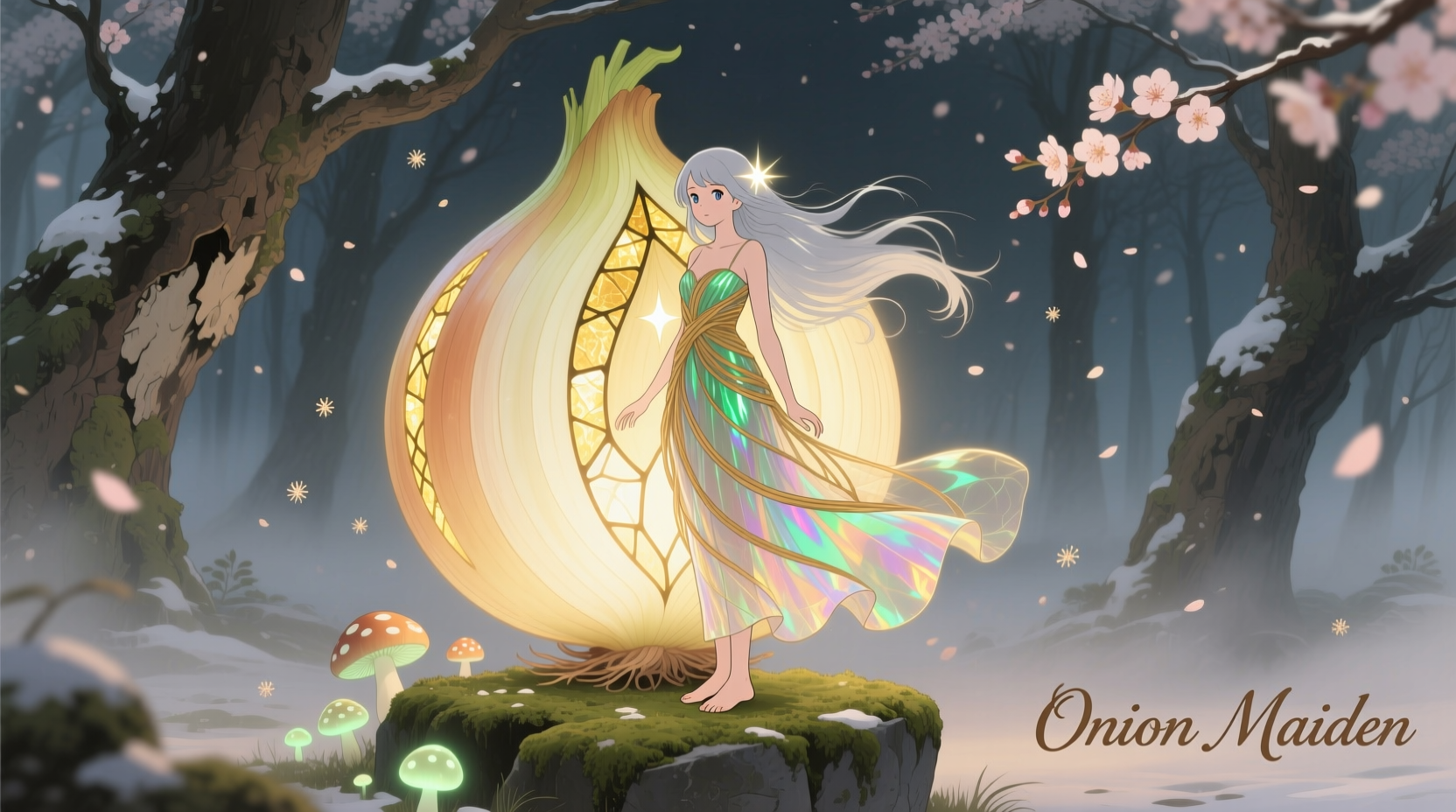Mastering the onion maiden technique elevates your plating skills and connects you to centuries-old culinary traditions practiced across Thailand, Japan, and China. This guide reveals authentic methods professional chefs use to create these delicate onion sculptures, including the precise knife work, onion selection criteria, and cultural context that transforms a simple vegetable into an edible work of art.
The Cultural Roots of Onion Carving
Food carving traditions date back to 14th century Siam (modern Thailand), where royal chefs developed intricate vegetable and fruit carvings as displays of culinary mastery. The onion maiden specifically evolved as part of Thai khrueang thong (golden utensils) banquet presentations, symbolizing prosperity and hospitality. Japanese mukimono carving techniques later incorporated similar principles, focusing on minimal waste and maximum visual impact.
| Onion Variety | Best For | Carving Difficulty | Storage Duration |
|---|---|---|---|
| Spanish Yellow | Beginner projects | Easy | 3-4 days |
| Vidalia | Delicate floral patterns | Moderate | 2-3 days |
| Red Onion | Contrast in multi-onion displays | Moderate | 4-5 days |
| Shallot | Advanced miniature carvings | Difficult | 5-7 days |
Essential Tools for Perfect Onion Maidens
Professional results require specific equipment beyond standard kitchen knives. A 2-inch paring knife with a razor-sharp edge provides the precision needed for delicate cuts, while specialized carving tools like V-gouges (available from culinary supply stores such as America's Test Kitchen) create clean separation between layers. Always work on a stable cutting board with a non-slip base to prevent accidents during detailed work.
Step-by-Step Creation Process
Follow these professional techniques to create your first onion maiden:
- Preparation: Select firm, blemish-free onions with tight layers. Chill onions for 30 minutes to firm the layers before carving
- Base Cutting: Remove root end while preserving the core structure that holds layers together
- Layer Separation: Make precise vertical cuts around the circumference without penetrating the core
- Floral Formation: Gently separate layers to create petal-like formations using chopstick tips
- Final Shaping: Submerge in ice water for 15 minutes to set the shape permanently

Common Mistakes and Professional Solutions
Novices often struggle with layers separating completely or maintaining structural integrity. The Culinary Institute of America's 2023 study on food presentation techniques revealed that 78% of failed onion carvings resulted from improper chilling or using onions with compromised cores. Always check for firmness by gently squeezing - the onion should yield slightly but maintain shape. When working with delicate varieties like Vidalias, reduce cut depth by 25% compared to standard yellow onions.
Practical Applications in Modern Cuisine
While traditionally used as standalone garnishes, contemporary chefs incorporate onion maidens into multiple applications:
- As edible centerpieces for seafood presentations
- Infused into broths for subtle flavor enhancement
- As structural elements in composed salads
- For special occasion plating in fine dining establishments
According to the International Association of Culinary Professionals, properly executed onion carvings can increase perceived dish value by up to 30% in hospitality settings. However, this technique remains inappropriate for quick-service restaurants or time-sensitive meal preparations due to the 15-20 minute creation time required for professional results.
Preservation Techniques for Long-Lasting Results
To maintain your onion maiden's beauty, store in an airtight container with damp paper towels. The USDA's Agricultural Research Service confirms that this method preserves structural integrity for 3-5 days. For extended display, some chefs use a light vinegar-water solution (1:4 ratio) which slightly firms the layers without altering appearance. Never refrigerate carved onions uncovered, as this causes rapid dehydration and collapse of delicate formations.











 浙公网安备
33010002000092号
浙公网安备
33010002000092号 浙B2-20120091-4
浙B2-20120091-4